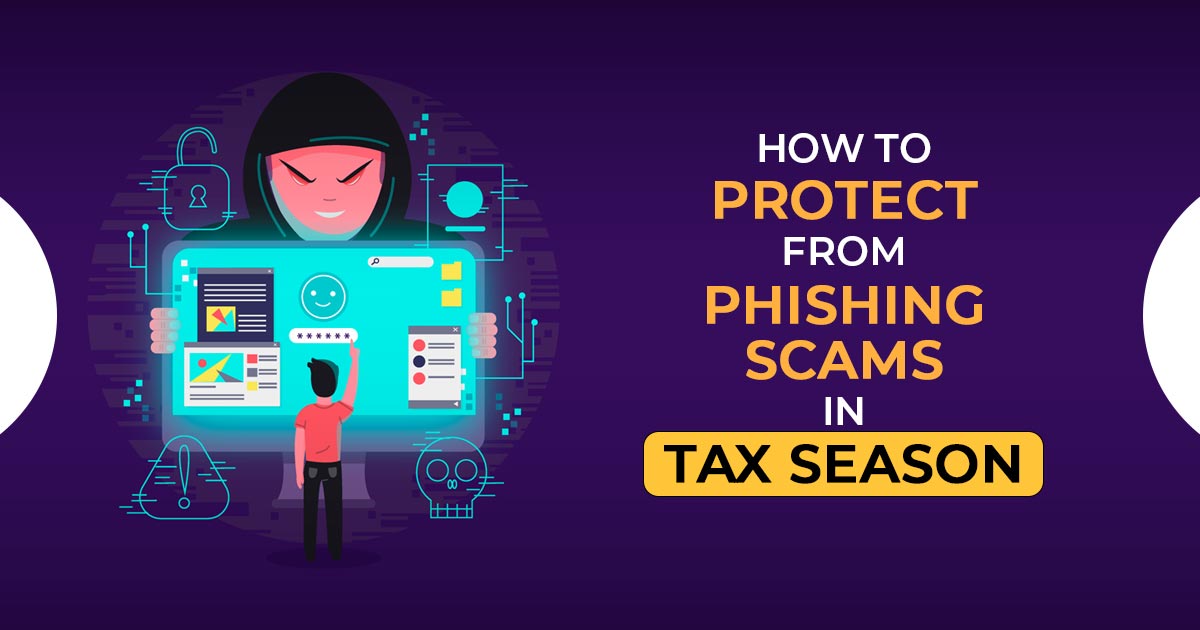
The realm of cybercrime is rapidly expanding, posing a significant threat in today’s digital age. With nearly every individual equipped with a mobile phone or gadget, the vast array of possibilities also exposes them to malicious activities perpetrated by those who exploit technological advancements.
You are eligible for an I-T refund of INR 15,490/-. The refund will be credited to your account with account number 5xxxxx6755. In case of any discrepancies, please update your bank account information by visiting the link below.
This serves as an illustration of a recent phishing scam where individuals receive messages claiming to be about income tax return refunds. The message includes a fabricated bank account number, leading unsuspecting users to inadvertently divulge their personal information.
Different Processes to Protect Yourself from Phishing Scams in Tax Season
Here are some of the different processes that can help you to protect yourself from phishing scams during tax season:
Reporter: How do scammers manipulate personal data, resulting in schemes where individuals are tricked into making substantial payments?
Tax Expert: These fraudsters exploit the obtained personal data to deceive unsuspecting individuals out of their earnings. They masquerade as officials from the Income Tax Department, highlighting purported irregularities in their tax returns and coercing them into paying fines.
Reporter: What preventive measures can individuals take to protect themselves from potential scams?
Tax Expert: To ensure security, individuals can adopt specific precautions, such as reporting the origin of the message, refraining from responding, avoiding the clicking of links or attachments, and incorporating anti-virus and anti-spyware software on their computers.
As per the Income Tax Website: “If you come across an email or website that appears to impersonate the Income Tax Department, forward the email or the website URL to webmanager@incometax.gov.in.
Additionally, send a copy to incident@cert-in.org.in. You can forward the message as received or provide the Internet header of the email, which contains additional information to help us trace the sender. Once you’ve forwarded the email or header information, delete the message.”
Nevertheless, in many cases, sound judgment fails to prevail, leading individuals to fall victim to the tactics of cybercriminals.
Reporter: What recourse do individuals have in India in terms of legal actions, and how do the Indian Penal Code and Information Technology Act provide remedies?
Tax Expert: The remedies that a person can have are to proceed and make a complaint under the Indian Penal Code,1860 and Information Technology Act, 2000 such as under Sections 415 (Cheating), 416 (Cheating by Personation), 418 (Cheating with knowledge that wrongful loss may ensue to person whose interest offender is bound to protect), 420 (Cheating and dishonestly inducing delivery of property), 425 (Mischief) as well as Section 66 (Computer related offences) and 66-D (Punishment for cheating by personation by using computer resource) of the Information Technology Act, 2000.
Reporter: What role do the challenges in investigating criminal networks play in complicating law enforcement efforts against cybercrimes?
Tax Expert: Investigating the intricate networks created by these criminals can be challenging, often requiring extensive analysis of Call Detail Records (CDRs) in conspiracy cases (punishable under Section 120 B of the IPC, 1860) and tracking the computer source involved.
Read Also: Alert Taxpayers! Scammers Sending Links to Steal Money During ITR Filing Time
In some instances, the involvement of the dark web adds a layer of complexity, presenting a unique set of challenges.
Reporter: How crucial is the establishment of specialized committees and law enforcement teams in addressing the intricacies of cybercrimes and financial frauds?
Tax Expert: To navigate through the complexities and unveil the layers involved, the establishment of specialized committees and law enforcement teams is imperative. This ensures that the money trail remains traceable, and more specific and stringent laws can be formulated to address the issues at hand.
Reporter: How does the apparent insufficiency of punishments emphasize the necessity for a comprehensive overhaul?
Tax Expert: It is evident that the penalties stipulated in the mentioned sections fail to serve as effective deterrents. Frequently, bail is readily granted in such cases due to incomplete investigations and the anticipation of prolonged trial proceedings. A crucial aspect of reform involves revisiting the punitive measures in place.